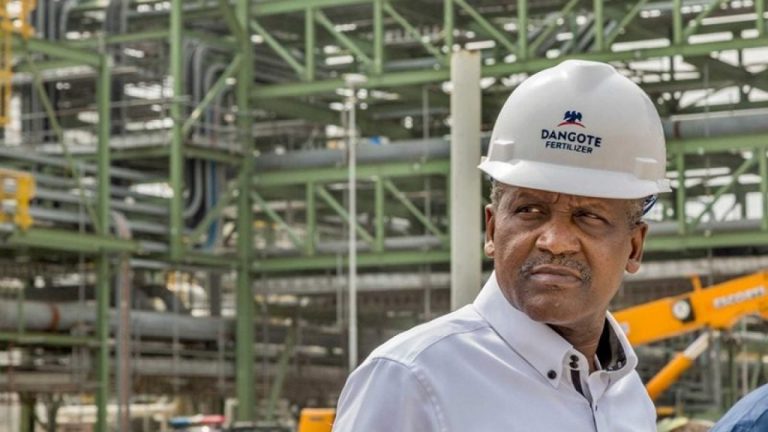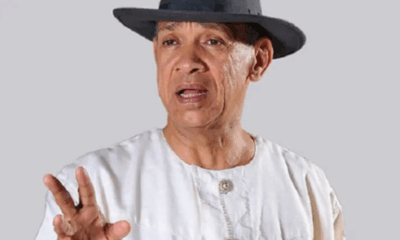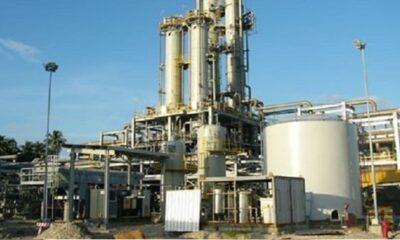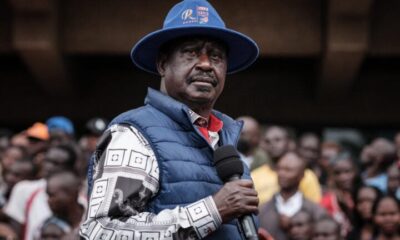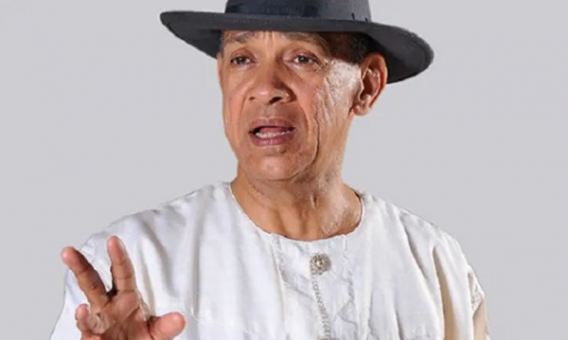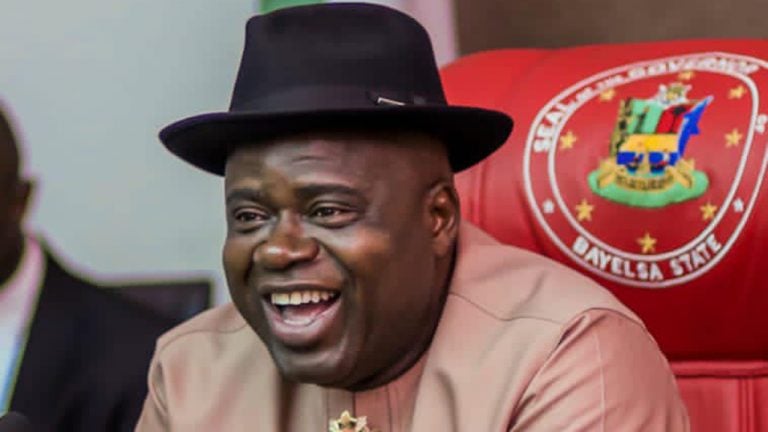The Independent Petroleum Marketers Association of Nigeria (IPMAN) has secured an agreement with Dangote Petroleum Refinery to lift products directly.
This, according to the association, will ensure the availability of petroleum to Nigerians at a cheaper rate.
IPMAN’s National President, Abubakar Garima, made this announcement at a press briefing on Monday in Abuja, following a meeting of the National Working Committee of the association.
He explained that the Dangote refinery had agreed to allow IPMAN to lift PMS, AGO, and DPK directly for onward supply to IPMAN depots and retail outlets. This new arrangement with the Dangote refinery will ensure a steady and ceaseless supply of PMS products across Nigeria at an affordable rate.
He said, “Following our recent meeting with Alhaji Aliko Dangote and members of his top management staff in Lagos, we are happy to state the following; Dangote Refinery has obliged IPMAN to lift PMS, AGO, and DPK directly for onward supply to IPMAN depots and retail outlets. That this new arrangement with the Dangote refinery will ensure a steady and ceaseless supply of PMS products all over Nigeria, at an affordable rate for Nigerians also.”
On October 29, the founder of Dangote Industries Limited, Aliko Dangote, stated that the refinery held over 500 million litres of petrol, but added that oil marketers were not purchasing his product.
In response, IPMAN said its members had been unable to load petrol from the Dangote refinery for days. Garima noted that the association had paid N40bn to the Nigerian National Petroleum Company Limited but still could not source the product. However, the refinery said it had not received any payment from IPMAN for refined petroleum products.
Speaking further at the briefing, Garima urged IPMAN members to support Dangote Refinery, highlighting the backward integration benefits and the positive impacts on Nigeria’s foreign exchange market.
Regarding pricing, Garima expressed confidence that negotiations with Dangote would result in lower rates.
“All IPMAN members should fully support the Dangote refinery, as it’s the ideal thing to do considering the monumental benefits of backward integration and the medium to long-term impact it will have on the foreign exchange markets in Nigeria.
“IPMAN members nationwide should rely on the Dangote refinery and Nigerian refineries for their white products, as this will translate into ensuring more job opportunities in Nigeria, as well as signify total support for President Bola Tinubu’s Renewed Hope Agenda,” he added.
Energy expert Kelvin Emmanuel commented that the new agreement would eliminate financing and margin costs incurred by the NNPCL.
He said, “What is cheery about this news is that NNPC’s letter of credit as financing cost ($28 per metric tonne) that is passed to IPMAN — controlling 30,000 retail stations and their margin ($26.48 per metric tonne) will be removed.”
The IPMAN president also mentioned that the association is preparing for a smooth transition to nationwide CNG refill stations, as it is currently in negotiations with the presidential CNG initiative.
“On CNG, I would also like to call on all our members at IPMAN to begin to put all types of machinery in place for a successful transition of the Federal Government’s plans to initiate CNG refill stations in all our outlets. Truly, there is no doubt that CNG has the potential to rejuvenate our economy for a better life for Nigerians, and IPMAN is ready to give her all to support the CNG initiative.
“IPMAN is also calling for a partnership with the Federal Government of Nigeria to hasten the quick success of the CNG initiative for Nigeria. We believe that for the CNG initiative to succeed, there must be a credible partnership between IPMAN and the PCNGI, without which Nigerians would not have ready and near access to CNG outlets.”
This partnership between Dangote and IPMAN is expected to increase efficiency, affordability, and economic growth for Nigeria’s petroleum industry. This move is expected to eliminate middlemen, reduce costs, and ensure a steady supply.
Earlier this year, the Dangote Refinery announced that it would supply fuel to about 150,000 retail outlets operated by oil marketers.
In his remarks, the chairman of the Board of Trustees of the association, Aminu Abdukadir, stated that IPMAN must remain committed to providing the retail stations and funds necessary to ensure that products are delivered to consumers.
“The business of making money without doing anything is over with the deregulation of the sector. For IPMAN to survive, it must provide the filling stations, the money, and the trucks, to provide this commodity to motorists,” he said.
Meanwhile, the Executive Secretary of the Major Energy Marketers Association of Nigeria, Clement Isong, explained that the final landing price is determined by several key factors, including the exchange rate, logistics efficiency, and cost negotiating power based on volume purchased.
Isong said, “If you read our bulletin, there is not one landing price for the whole country. What we are saying is to give an idea of the landing price—if you land 38,000 metric tonnes into ASBM in Apapa, this is the landing price. That’s what we are saying. If you land 100,000 MT or 80,000 MT into Pinnacle, the landing price will be lower. But there are only two places where the landing price will be lower due to economies of scale. If you land in the majority of the country, the depots and facilities take less. So, if you land it into another place in Lagos, the landing price will be higher. It won’t be N971 per litre. It can be as close to N1,000.
“So, the landing price is a function of how much you got your exchange rate, logistics, and your negotiating power based on the volume bought. Some marketers are landing below N917. But the vast majority of people who don’t enjoy the benefits of economies of scale will land at significantly above that. What this teaches is that it is a free and open market. It’s how you buy that you sell. There is no one price. It is a function of the draft of the vessels that you land the product. It’s a function of how much product was bought. It’s a function of what rate of exchange was used to buy products. The exchange rate that we have used is the central bank rate. So, if you have the central bank rate, then you will not land at that price, but if you go to the black market, the price will be higher.
“The law says that we can only keep 30 days of stock in our depots. So, the fact that the spot market has gone up means nothing because you are selling based on the price of the average cost in your tank. The fact that the price has gone down to N971, it doesn’t matter because we are selling based on the average cost in your tank. How much did you buy and the average cost of everything in the tank? It’s a market price. And the market price is a range. It moves, depending on how efficient you are. And I think for us, the most important thing is the exchange rate.”

 BIG STORY21 hours ago
BIG STORY21 hours ago
 BIG STORY8 hours ago
BIG STORY8 hours ago
 BIG STORY2 days ago
BIG STORY2 days ago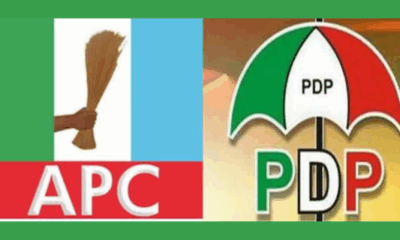
 BIG STORY1 day ago
BIG STORY1 day ago
 BIG STORY4 days ago
BIG STORY4 days ago
 BIG STORY2 days ago
BIG STORY2 days ago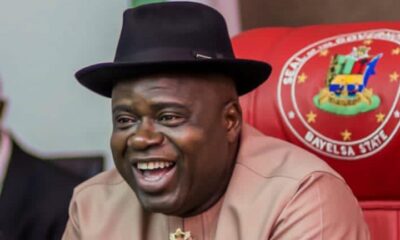
 BIG STORY3 hours ago
BIG STORY3 hours ago
 BIG STORY1 day ago
BIG STORY1 day ago




